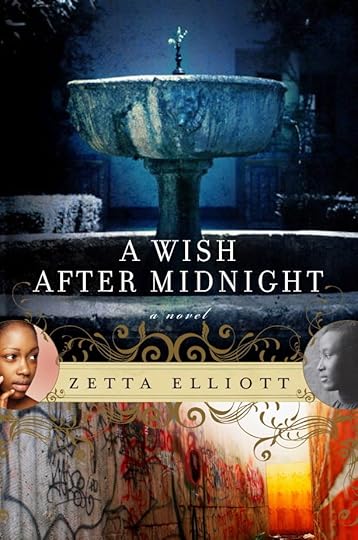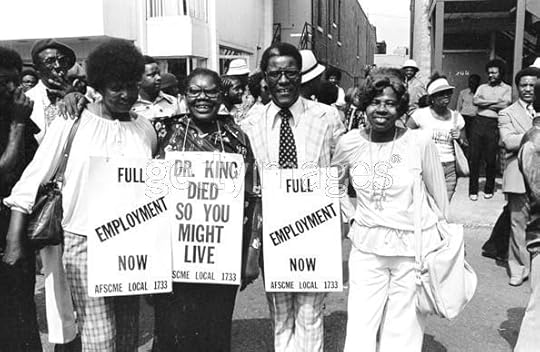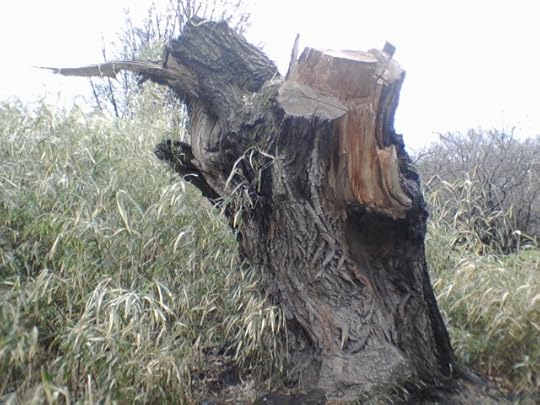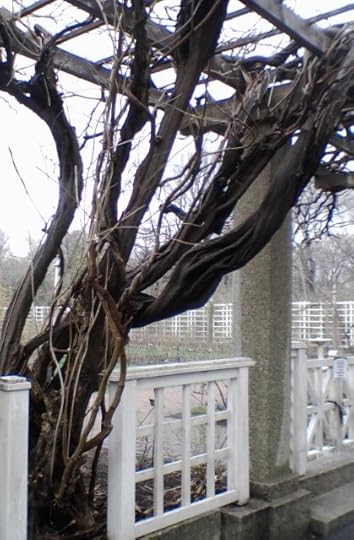Zetta Elliott's Blog, page 91
April 5, 2011
upcoming Toronto event
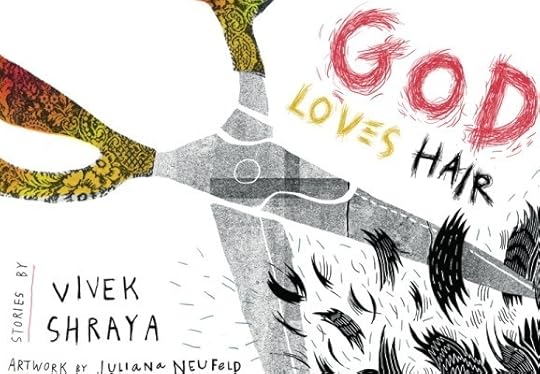
How do recent changes in publishing affect underrepresented voices? Come hear three authors speak about their unique experiences in a changing industry:
Neesha Meminger, who was published by a large, mainstream press, then self‐published her second novel; Zetta Elliott, who self‐published her first
novel, then had it picked up by Amazon's publishing arm; and Vivek Shraya, whose self‐published debut novel was just listed on the American Library
Association's Rainbow List. Free and open to the public! This event will be webcast at www.womensbookstore.com.
April 21, 2011
6:30pm
Toronto Women's
Bookstore
73 Harbord St.
Toronto, ON
416‐922‐8744
1‐800‐861‐8233








April 4, 2011
remember why he died
The Crunk Feminist Collective has a great post up today on Dr. King's contribution to the labor movement. Below, union members marching in Tennessee in 1976.








April 3, 2011
2011 Day of Dialog
Thanks to Amy Bodden Bowllan for bringing this May 23rd School Library Journal event to my attention. I'm going to try to attend the morning panel, but I teach in the afternoon and then have a Book Expo reception to attend in the evening. Book Expo's always a busy time, so if you can attend the entire Day of Dialog, please blog about it and share a link!
SCHEDULE OF EVENTS
8:00-8:30 AM
BREAKFAST & REGISTRATION
8:30-8:35 AM
WELCOME, Brian Kenney, Editor-in-Chief, School Library Journal
8:40-9:15 AM
KEYNOTE SPEAKER
Katherine Paterson, National Ambassador for Young People's LiteratureBreakfast & speaker sponsored by Candlewick Press
9:15-10:15 AM
PANEL I: Diversity in YA Literature
Where we are and where we'd like to be.MODERATOR: Amy Bowllan, Director of Diversity and Educational Technology, The Hewitt School
AUTHOR PANELISTS:
Paul Griffin, Stay with Me (Dial)
Malinda Lo , Huntress (Little, Brown)
Cindy Pon , Fury of the Phoenix (Greenwillow)
Rita Williams-Garcia , One Crazy Summer (HarperCollins)
10:15-10:30 AM
BREAK
10:30-11:30 AM
Publishers' Pitch Part 1
11:30-12:30 PM
PANEL II: The Children's App Landscape
What is being produced and how can libraries use them?MODERATOR: Lisa von Drasek, Coordinator, School Services/Children's Librarian, Bank Street College of Education
PANELISTS:
Linda Braun, consulting coordinator for Libraries $ Educators Online (LEO)
Donald Crews & Virginia Duncan, Author & Editor Freight Train App (Greenwillow)
Deborah Forte, President of Scholastic Media
Scott Gordon, digital producer at Random House Children's Books
12:30-2:00 PM
LUNCH SPEAKER: Daniel Handler, aka Lemony SnicketLunch & speaker sponsored by Little, Brown Books for Young Readers
2:00-3:00 PM
PANEL III: Picture Book BiographiesMODERATOR: Martha Parravano, Executive Editor, The Horn Book
AUTHOR PANELISTS:
Matt de la Peña, A Nation's Hope (Dial)
Meghan McCarthy, The Incredible Life of Balto (Knopf)
Patrick McDonnell, Me…Jane (Little, Brown)
Melissa Sweet, Balloons Over Broadway (Houghton Harcourt)
3:00-3:15 PM
BREAK
3:15-4:15 PM
Publishers' Pitch Part 2
4:15-5:15 PM
PANEL IV: Stellar Debut AuthorsMODERATOR: Brian Kenney, Editor-in-Chief, School Library Journal
PANELISTS:
Adam Gidwitz, A Tale Dark & Grimm (Dutton)
Julie Kagawa, The Iron King (Harlequin Teen)
Thanhha Lai, Inside Out & Back Again (HarperCollins)
Dave Roman, Astronaut Academy (First Second)
5:15-6:00 PM
COCKTAIL RECEPTION & AUTHOR SIGNINGS
Questions? Contact SLJEvents@mediasourceinc.com









April 2, 2011
when the sun doesn't shine
 You can actually see things more clearly. A rainy day is the best time to visit the garden; I went yesterday afternoon and only saw two other people (who didn't make eye contact). When it rains, you can dip the brim of your umbrella and disappear, see the world without it seeing you. I was so busy looking at the ground that I forgot to look up at the buds on the trees, the raindrops suspended from dark, slender twigs. Then I noticed the moss and the dry sides of trees, the sheltered places beneath branches that raindrops can't reach. The bright pink rhododendron and star-faced daffodils were the only brights spots in the garden. Mostly I was looking at bark…trees will tell your stories if you come close. Writing again…
You can actually see things more clearly. A rainy day is the best time to visit the garden; I went yesterday afternoon and only saw two other people (who didn't make eye contact). When it rains, you can dip the brim of your umbrella and disappear, see the world without it seeing you. I was so busy looking at the ground that I forgot to look up at the buds on the trees, the raindrops suspended from dark, slender twigs. Then I noticed the moss and the dry sides of trees, the sheltered places beneath branches that raindrops can't reach. The bright pink rhododendron and star-faced daffodils were the only brights spots in the garden. Mostly I was looking at bark…trees will tell your stories if you come close. Writing again…








March 31, 2011
so hood? so what?
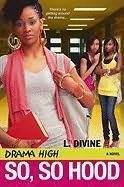 Thanks to everyone who came out to Bard High School Early College last night! I delivered the inaugural Peterson Lecture in the Humanities and it was warmly received. A lovely librarian gave me a ride home and I then had time to mull over an article my agent clipped from the New York Times. Did you know the author of the Bluford High series was a white man from New Jersey? You can read the article here. Part of my talk focused on the evolution of my own urban aesthetic, and I insisted that,
Thanks to everyone who came out to Bard High School Early College last night! I delivered the inaugural Peterson Lecture in the Humanities and it was warmly received. A lovely librarian gave me a ride home and I then had time to mull over an article my agent clipped from the New York Times. Did you know the author of the Bluford High series was a white man from New Jersey? You can read the article here. Part of my talk focused on the evolution of my own urban aesthetic, and I insisted that,
For me, the greatest challenge in developing an urban aesthetic is…representing the varied realities of urban children without echoing and thereby reinforcing philanthropic or sociological narratives that figure urban children as pitiful, powerless, and/or pathological.
You can write about "the gritty reality" of urban life without glorifying violence and dysfunction. I haven't read any of the Bluford books but that article didn't sit well with me. One of the questions that came up last night was around giving kids books that are not simple mirrors—if you live in a neighborhood that's plagued with violence and drugs, then you deserve a book that reflects that reality but you might NEED a book that offers some alternatives…art should reveal what's POSSIBLE, not only what's real.
Books like the Bluford High series have undeniable appeal, though, and maybe they can serve as a "gateway" to other kinds of books. Edi over at Crazy Quilts has posted a great list of spring releases, including some adult titles that might appeal to teens. Fans of urban fiction have plenty of options…
If you want to learn more about the RANGE of fiction by women writers of color, make sure you subscribe to Color Online. And stop by Multiculturalism Rocks! because Nathalie's running a series of interviews with CO's contributors. And have you seen Nathalie's new logo? She designed it herself and it's beautiful…








March 28, 2011
Who's Who in Black Canada
 I know I spend a lot of time moaning about my time in Canada, but there are *many* black people who chose to tough it out and managed to excel in their chosen fields. Who's Who in Black Canada is a fantastic project that highlights the contributions of African Canadians, and today they've put the spotlight on me! You can see my complete profile here, and this is an example of the questions they ask:
I know I spend a lot of time moaning about my time in Canada, but there are *many* black people who chose to tough it out and managed to excel in their chosen fields. Who's Who in Black Canada is a fantastic project that highlights the contributions of African Canadians, and today they've put the spotlight on me! You can see my complete profile here, and this is an example of the questions they ask:
Favourite book? It's impossible to pick just one, but Ezra Jack Keats' Snowy Day was important for me; it was the first book I read as a child that featured a Black protagonist, and Keats' books continue to inform my scholarship on multicultural children's literature.
Favourite quote? "Bear but a touch of my hand and you shall be upheld in more than this." – from Dickens' A Christmas Carol
Given the chance, what would you love to do that you haven't done yet? Publish books for children IN Canada! I'm working on developing a conference to discuss the lack of diversity in Canada's publishing industry.
Colleagues at York University have since taken on that conference, so all I have to do now is find a Canadian press willing to give my work a chance…








March 25, 2011
Triangle Fire
If you've ever complained about conditions at your job, you might want to take a moment today to recognize the dozens of young women who died 100 years ago in the horrific fire at the Triangle Shirtwaist Company. When people ask why we need unions, it soon becomes clear that they don't know much about labor history in the US. As Frederick Douglass famously asserted, "Power concedes nothing without a demand. It never did and it never will." And when demands are dismissed, disaster often follows, as was the case here in NYC in 1911—and workers STILL have to fight for fair and safe working conditions. PBS has a great interactive site for their recent film on the Triangle Fire; you can watch the complete film here.









March 24, 2011
unpacking the past
I've got a new essay up at Hunger Mountain—here's a short excerpt:
Canada is a former British colony, and so I grew up reading (and loving) British "classics." Looking back on it now, I am not at all surprised that my fifth-grade teacher would select a seventy-five year old book for her students. What I cannot forgive is the book's appalling depiction of "dirty" (yet "shiny") "savages" who—with their "brown coppery" skin and Afros—just happen to match a description of me at age nine. Did the video include this tropical scene with drum-beating, wildly dancing natives whose language sounds to the white children like "Oo goggery bag-wag"?
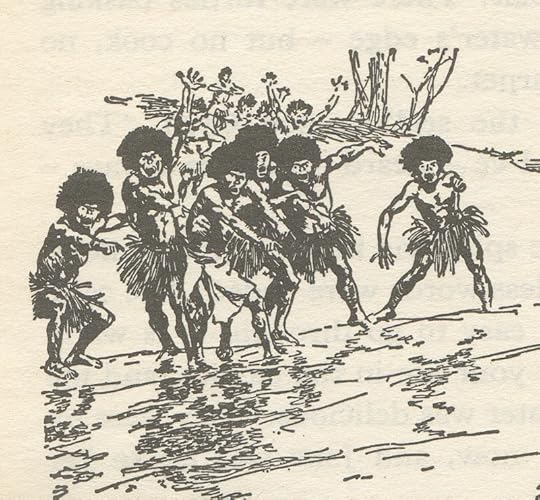 (illustration by HR Millar, from The Phoenix & the Carpet)
(illustration by HR Millar, from The Phoenix & the Carpet)








March 23, 2011
Roots & Blues
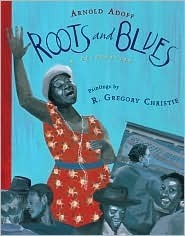 I'm so pleased to share this interview with you! Arnold Adoff has been a friend and mentor to me for some time now, and we can all benefit from his wisdom, insight, and experience in the publishing industry. Stay tuned because illustrator R. Greg Christie will be featured soon. Arnold's words and Greg's images are perfectly paired in this beautiful book—a wonderful gift for a child, teen, or adult.
I'm so pleased to share this interview with you! Arnold Adoff has been a friend and mentor to me for some time now, and we can all benefit from his wisdom, insight, and experience in the publishing industry. Stay tuned because illustrator R. Greg Christie will be featured soon. Arnold's words and Greg's images are perfectly paired in this beautiful book—a wonderful gift for a child, teen, or adult.
I once had another children's book author mock the reference to Charlie Parker in my picture book, Bird. His point was that kids listen to hip hop, not jazz. Talk about your decision to write about the blues—a musical genre, a time, and place (the rural South) seemingly far removed from today's youth.
the blues is the foundation stone for all of our "popular" music(s)….
and think of that solid rock so powerful it can propel into the air and float and spin
through decades and geographies:
from robert johnson and itta bena, mississippi …
to nina simone and tupak and (even) the beatles….
this is always known and always understood….
what
is more difficult to discern…to have registered on developing sensibilities…
is that sense of history…the movements from the rural south(s) to the town and cities
of the north…
(and my riff on the george santaya philosophical line: those who not study their histories
are inevitably doomed to repeat and repeat the mistakes (and meaningless
mediocrities) which weaken into self-destruction and marginalization….)
a people grows and moves and reaches beyond itself/selves
in all forms of communication…all forms of art….
if we are aware…if we teach our young…
if we remain rooted in this moment and are able
to also trace backwards….
all the trails remain:
from baraka to langston backwards to blues….
from clapton to big joe turner and backwards…to blues….
from malcolm and martin backwards to garvey and tubman to blues….
from fifty cents to muddy waters to bessie smith to the blues….
these geographies should be part of required curriculum in every school (black and white and
in-between….)
and yes, it is always a continuing struggle…to go backwards when vast media machines
pull us forward into something new to buy….
so blues and jazz always require the active energies of one generation onto/into the next….
the blues lifts the listeners and heightens feelings and thought(s)
and
the blues is a s u r v i v a l music…a tool…a weapon of self and self love(s)….
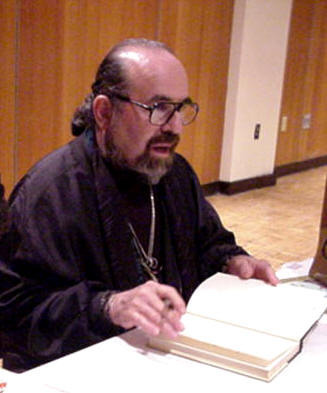 Technology is changing the way many people write. As a poet, tell me what you think of Twitter and other platforms that require concise communication. Is this a promising moment for poetry?
Technology is changing the way many people write. As a poet, tell me what you think of Twitter and other platforms that require concise communication. Is this a promising moment for poetry?
my thumbs are too old to (even) text…let along tweet….but i remain open to all forms
of communication from all generations of readers and listeners and friends….
pesonally: i have been poeting "seriously" since around 1946…and the math tells me
thats almost 65 years…or loving language and respecting the music as well as the meaning of the language made into the pieces of poems and "poet's prose…." i work out an idosyncratic "shaped colloquial
speech" style which requires the space and spaces on a page…to mean something…and to sing….
this is a time of wonderful poetry… and performing crap…as in all art forms…and in all times….
marketing and promotion and self-promotion strategies like facebook and twitter do what they were designed to do….babely communicating the bare bones of thought or piece of information…all the juice of language removed…the nuances…the conflicting and parallel meanings….
and in the end…there is only convenience…a taco in the car…moving forward again…but to w h e r e….
and in my darker moments…i can't help wondering what will be left of the tree when the bark (and bite) is gone…and the juice is gone…and shaving down humane human communication to its thinnest
stalk…leaves only the vulnerabilities….
be controlled or be destroyed….
[image error]








March 22, 2011
outside child
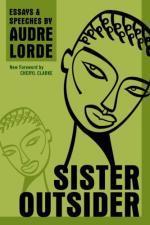 Have you been following the great posts over at Women Doing Literary Things? It's my turn today, and I borrowed Audre Lorde's term—"sister outsider"—to express both the acceptance and exclusion I've experienced within the publishing industry. Here's an excerpt:
Have you been following the great posts over at Women Doing Literary Things? It's my turn today, and I borrowed Audre Lorde's term—"sister outsider"—to express both the acceptance and exclusion I've experienced within the publishing industry. Here's an excerpt:
When I learned that the goal of this blog was to "celebrate and reaffirm the depth and breadth of women's involvement in literature," I knew I wanted to participate. Yet when I reflect upon my involvement in the literary world, I find that little of my time and energy has gone toward addressing "the fundamental wrongness of gender disparities." When everyone in your world is female, gender tends not to be the focus. For me, the main problem isn't that men are impeding my progress as a writer. The truth is, behind every door that has been closed in my face…there's another woman.
Sometimes that woman looks like me, but more often than not, she doesn't. She belongs to a different race, a different class, and a different culture.









